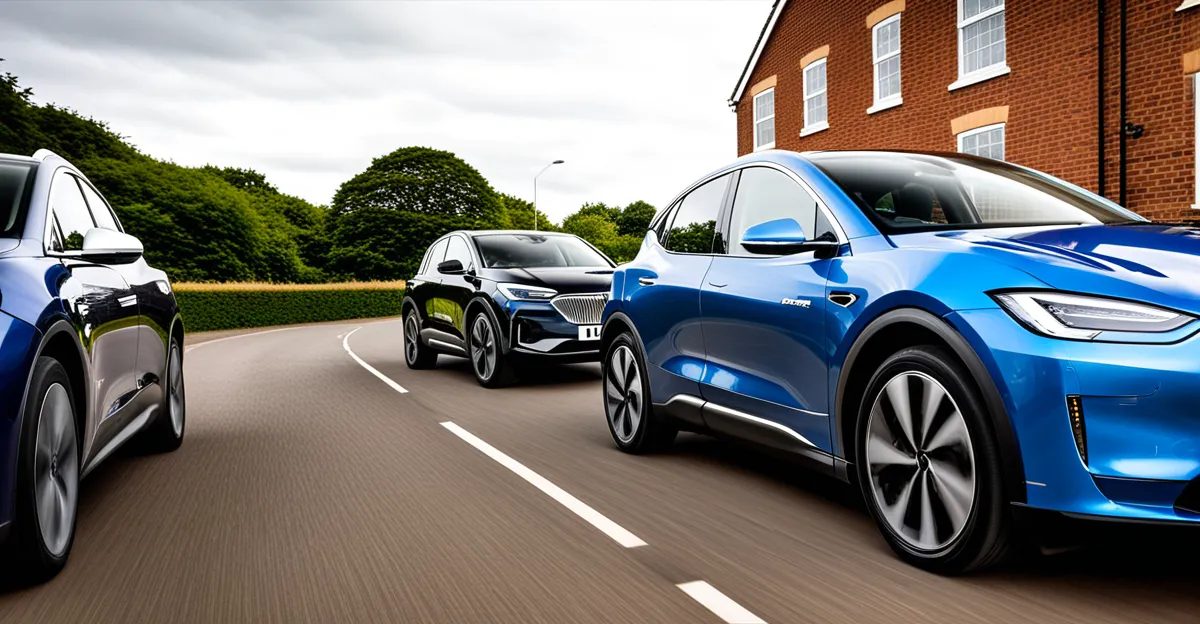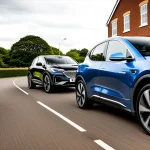Key Drivers of Electric Vehicle Adoption in the UK
The reasons for electric vehicle adoption in the UK stem primarily from robust government policies and incentives designed to encourage consumers to switch from petrol and diesel vehicles. Financial grants, tax exemptions, and reduced congestion charges make owning an EV increasingly attractive. These incentives not only lower upfront costs but also enhance the appeal of long-term savings on fuel and maintenance.
UK transport trends reveal strict regulations on petrol and diesel vehicles, such as bans on new sales planned for the coming years, which further push consumers toward electric alternatives. This regulatory environment supports the shift by signaling a clear future trajectory toward cleaner transport.
In parallel : How is the UK automotive industry responding to consumer demand for sustainability?
Improved affordability plays a crucial role. Advancements in production and battery technology are driving down prices, making EVs more competitive. This aligns with a growing awareness of the long-term cost savings electric vehicles offer through reduced fuel expenses and lower servicing needs.
Together, these factors create a compelling case for consumers considering the switch, highlighting how government action, regulatory pressure, and economic factors synergize to propel electric vehicle adoption in the UK.
Additional reading : What Innovations Are Driving the Future of UK Automotive Industry?
Evolving Charging Infrastructure and Accessibility
The expansion of UK EV charging points has become a crucial factor in supporting electric vehicle adoption UK-wide. Public and private efforts have dramatically increased the number of charging stations, addressing drivers’ range anxiety and making EV ownership more practical. As of recent years, charging networks have grown not only in number but also in technological sophistication.
Charging infrastructure accessibility varies between urban and rural areas. Urban centers typically offer numerous charging points, often integrating rapid chargers for quicker top-ups. Rural locations, meanwhile, are catching up, with investments targeting remote areas to ensure broader access. This balance is essential to maintain confidence that electric vehicles can serve all drivers’ needs.
Integration of rapid and ultra-rapid charging solutions helps reduce charging times significantly. These chargers provide a substantial battery boost in 20–40 minutes, allowing electric vehicle users to travel longer distances with shorter stops. The continued deployment of such fast chargers is a tangible solution to common concerns about convenience, further driving electric vehicle adoption UK-wide. Together, the expanded network and improved access underscore the critical role infrastructure plays in supporting EV popularity in the UK marketplace.
Environmental and Social Motivations for Switching to EVs
Public concern over air pollution and climate change remains a prominent reason driving electric vehicle adoption UK-wide. With the UK aiming to reduce harmful car emissions, many consumers seek cleaner alternatives. Electric vehicles contribute significantly to lowering local air pollution, improving urban air quality particularly in densely populated areas.
How do EVs support the UK’s net-zero goals? They emit no tailpipe CO2, aligning with government targets to reach net-zero carbon emissions by 2050. This systemic reduction in transport emissions highlights the environmental benefits EVs bring, making them an essential part of sustainable transportation.
Changing public attitudes toward electric cars reinforce the shift. Growing awareness of climate impact and positive perceptions of EV technology motivate consumers to adopt greener travel options. Social acceptance is strengthened by visible government campaigns and increasing EV visibility on UK roads.
Together, these motivations create a powerful push for electric vehicle adoption UK-wise. Environmental benefits, coupled with evolving societal values, ensure EVs are viewed not just as vehicles but as vital tools in the nation’s sustainable future.
Technological Advances and Model Availability
Technological innovation in EVs is a prime driver of electric vehicle adoption UK-wide. Recent breakthroughs in battery technology have extended driving ranges, addressing one of the main concerns for potential buyers. Modern batteries now deliver longer life with faster charging times, improving practicality for everyday use.
The variety of UK electric car models has expanded significantly. Consumers have more choices than ever, with options ranging from compact city cars to luxury SUVs. This diversity caters to different needs and budgets, making the shift to electric more accessible. Popular UK models now feature advanced safety systems and intuitive digital interfaces, enhancing the overall driving experience.
Smart technology integration further elevates EV appeal. Features such as real-time navigation, predictive charging, and vehicle-to-grid capabilities make owning an electric car seamless and efficient. As these innovations mature, the UK electric car models become more competitive with traditional vehicles.
Battery advancements and broader model availability work hand-in-hand, boosting confidence in EV ownership. Together, they resolve many hesitations about range, performance, and convenience, fueling ongoing growth in electric vehicle adoption UK.








